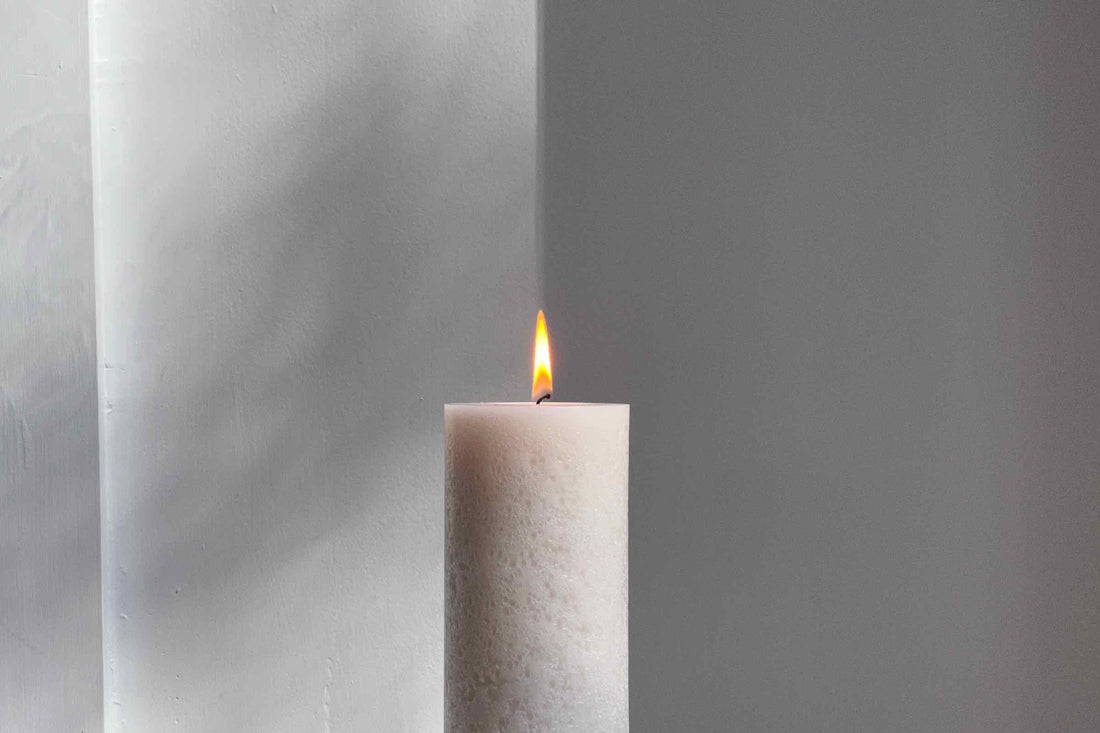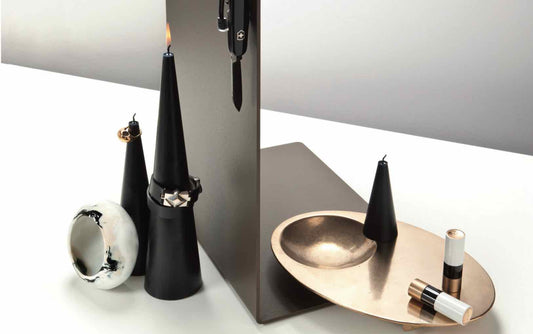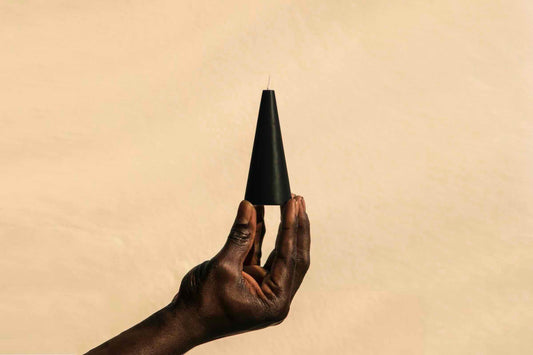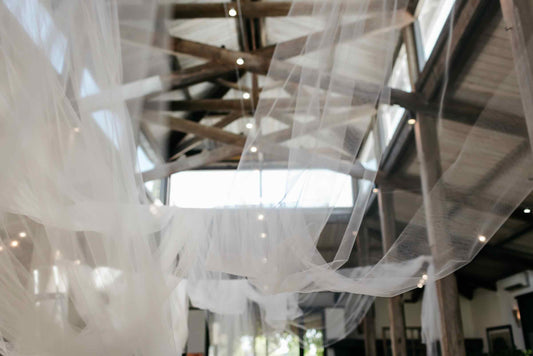
How to keep a candle from smoking
Share
Do our candles burn without smoking? Yes. So are they smokeless? That depends on more than just the candle. A well-made candle shouldn't smoke, but whether or not it does depends on the conditions in which it is burned. If you've ever wondered 'why is my candle smoking?', then read on to see how to turn a smoking candle into a smokeless candle.
As a result of misinformed or even misleading marketing, people sometimes incorrectly believe their candles can or cannot smoke (soot) because of the wax type, fragrance, colorants or additives used in the candle’s formulation, but sooting is primarily due to flame and combustion disturbances.

Why does my candle smoke?
When burnt in proper conditions, a well-made candle shouldn't smoke. However, if you expose any candle to a draught, it will start to smoke. Likewise, blowing out a candle will cause it to smoke. This is regardless of the type of candle; it is a result of incomplete combustion.
So assuming you have a well-made candle, be it of beeswax, coconut, palm, paraffin or soy wax, or a blend of these, let's look at how to make it smokeless by addressing what causes the candle to smoke and how to remedy it.
A properly burning and well-made candle can produce a little smoke every now and then, but it should never continuously smoke. If a noticeable amount of smoke is being generated, knowing the causes can help stop it.
1. Draught
Move your candle out of a draught, or shield it from the draught.
Candles burn best in still air - if too much (or too little) air reaches the candle flame, it will disturb the ideal teardrop shape of the flame, and may cause the candle to start flickering and smoking. Any candle will soot if the flame is disturbed. To avoid this, always burn your candles in a well-ventilated room, away from drafts, vents or strong air currents. If a draught can't be avoided, try shielding the flame from the draught, for instance by placing it in a candle holder, and turn the candle periodically to avoid uneven burning and possible candle collapse.

2. Wick length
Another cause can be a wick that is too long; extinguish the flame, let the candle cool down, shorten the wick to 6mm (1/4 inch) and light again.
A trimmed wick creates a calm, steady flame, which means the candle's burning process is in balance. The wick is efficiently pulling up the right amount of wax, and the flame creates complete combustion. A wick that is too long won't be able to draw wax all the way to the top, and the wick itself will start to burn, causing it to smoke. A too-long wick can also cause a candle flame to grow too long and flare, again producing soot.
3. Container size
If your smoking candle is inside a candle vase, lantern or container, then it could be that the vase is too small for the candle. Likewise jar candles, for instance your standard scented soy candle, often start smoking as the flame goes deeper into the jar. You can see the results of a soot-producing candle on the edges of your glass container in the form of a black ring.
As the oxygen inside the container burns up, more air is sucked into the container from the top, yet at the same time warm air, heated by the candle, is rising up and trying to escape the container. These two flows or air disrupt each other, causing a draught inside the container that disturbs the flame. There are two ways to avoid this:
- Use a container that is open on both sides so hot air can rise out and cold air can get sucked in from the bottom, or
- Choose a bigger container and/or smaller candle: make sure that there is roughly half the candle diameter of space between the candle and the vase edge. So in case of a 7cm candle, there should be at least 3.5cm of space between the candle and the edge of the container.

4. Tunnelling
Tunnelling has the same effect on a candle as a container that is too small or a jar; in this case, the unburnt rim of the candle itself acts as a jar and causes smoking. To avoid tunnelling, make sure the initial burn is long enough to melt the candle all the way to the edge, and avoid single-wick pillar candles over 10cm in diameter.
5. Wax purity
Always choose candles with high-purity wax. Any impurities mixed into the wax, including scent oils, can impair combustion conditions and cause sooting. Try to avoid candles that are soft to the touch, as well as overly scented candles, as these generally have oil mixed into the wax.
How to extinguish your candle
Our final tip is regarding the correct way to extinguish a candle. The greatest amount of sooting from a candle generally occurs when the flame is extinguished, interrupting the combustion process. Instead of blowing out your candle and ending up with a smouldering and smoking wick, dip the wick: extinguish your candle by pushing the wick into the pool of hot wax and pulling it back out.

This should take care of smoking issues for most candles, unless the cause is an issue with the quality of the candle itself (for instance too much essential oil might have been added for fragrance or poor quality dye was used to colour the wax).
So even though there is more to it than simply claiming a smokeless candle, you can burn well-made candles in a smokeless way and enjoy a clean candle experience by following the above tips. Let us know your experience via the comments below, read more about burning candles best practices, or get in touch through email if you have any questions.
Enjoy your candles and don't let them go up in smoke!
Shop our complete range of candles online in Australia for a smoke free burning experience.





5 comments
Yankee candles are so expensive and burn like crap letting off black smoke ,certainly wasted my money
This also used to happen to me. The best way to solve this is to extinguish the candle by using a fire safe object (I use the metal part of my scissors) and bend the wick into the melted wax. This ensures absolutely no smoke is emitted when your done with your candle 🙂
Helen – immediately after extinguishing the flame, try pinching the wick with a damp cloth to cool it down instantly and stop the smoking.
After buying a rather expensive large original Yankee Candle, I’m disappointed that if smokes really bad when extinguished, the house reeks of the smoke so much that I’m afraid to light it, Iv tried trimming the wick short, not having the candle in a draught and other tips found on the internet. I expected better from Yankee Candles.
Very helpful